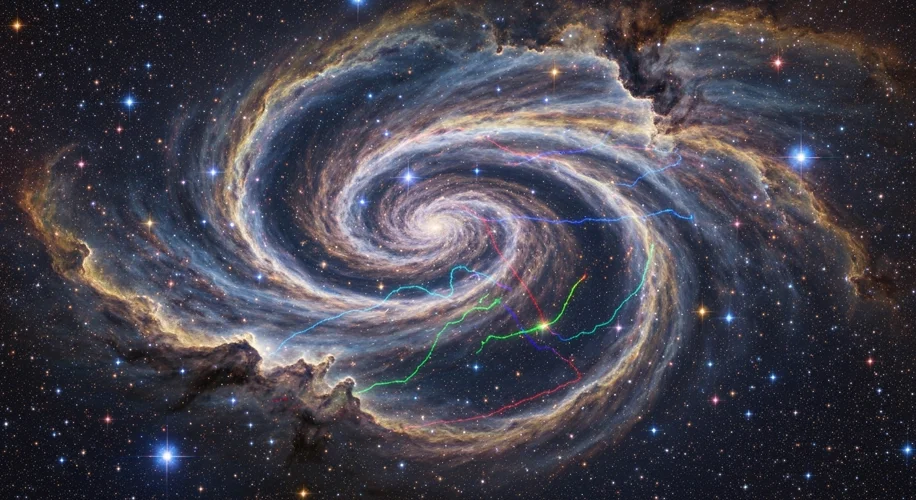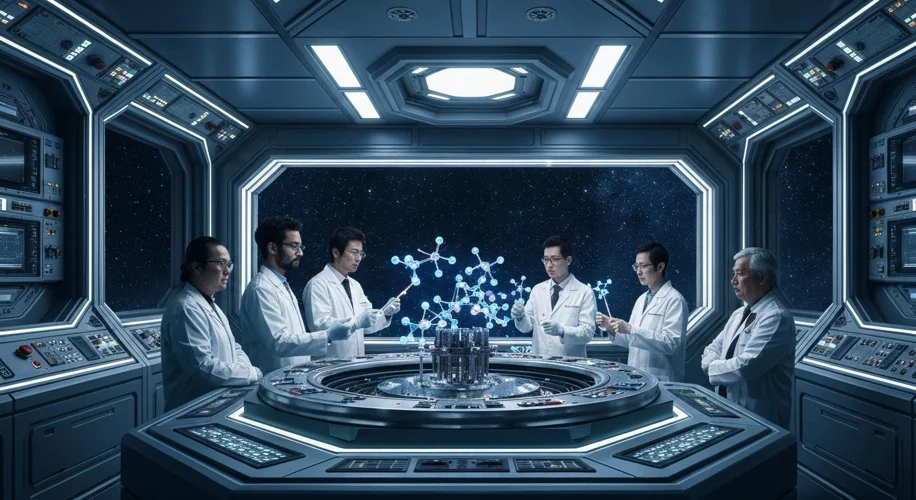Imagine standing on the precipice of the unknown, gazing into the inky blackness of space. For millennia, humanity has pondered what lies beyond our terrestrial home, searching for answers in the silent dance of celestial bodies. Today, in a remarkable convergence of astronomy and chemistry, scientists have achieved something truly astounding: they have synthesized a complex alcohol molecule, a substance so exotic it’s been theorized to exist only in the frigid, distant reaches of deep space. This isn’t your average weekend barbeque brew; this is a ‘super alcohol,’ a molecular marvel that whispers tales of cosmic origins and the fundamental building blocks of life.
For decades, radio telescopes have scanned the universe, picking up faint signals from interstellar clouds. Among these ethereal whispers, astronomers detected the spectral signature of a molecule known as iso-propyl cyanide. While this might sound like a complex chemical name, it represents something far more profound. It’s a complex alcohol, a type of molecule crucial for the formation of amino acids, the very components that make up proteins – the workhorses of life as we know it. The detection of such molecules in space suggests that the ingredients for life are not unique to Earth but are perhaps scattered throughout the cosmos like cosmic dust.

But detecting a molecule in space and recreating it here on Earth are two vastly different feats. The challenge lies in the extreme conditions of interstellar space – the near-absolute zero temperatures, the intense radiation, and the incredibly low densities. To replicate these conditions in a laboratory is a feat of immense scientific precision and ingenuity. Scientists have painstakingly worked to recreate the chemical reactions that might occur in these cosmic nurseries, attempting to assemble these complex molecules from simpler precursors.
The breakthrough came when researchers successfully synthesized iso-propyl cyanide in a laboratory setting. This molecule, with its characteristic structure containing carbon, hydrogen, and nitrogen atoms arranged in a specific way, is considered a ‘super alcohol’ due to its complexity and its significance in astrobiology. Its presence in the vast interstellar clouds is like finding a key ingredient for a cosmic recipe, suggesting that the chemical pathways leading to life might be common throughout the universe.
The implications of this achievement are staggering. It provides tangible evidence that the complex chemistry necessary for life isn’t confined to our planet. It fuels the age-old question: are we alone? While this molecule is not life itself, it is a crucial precursor, a building block that, under the right circumstances, could contribute to the formation of more complex organic molecules, and eventually, perhaps, life.
This discovery pushes the boundaries of our understanding of astrochemistry and astrobiology. It allows scientists to test their theories about how organic molecules form in space and how they might eventually seed nascent planets. It’s like deciphering a secret language spoken by the universe, a language written in the very molecules that drift between the stars. The successful synthesis of iso-propyl cyanide is not just a chemical triumph; it’s a testament to human curiosity and our relentless drive to understand our place in the grand cosmic narrative. As we continue to explore the universe, molecule by molecule, we inch closer to understanding the profound mystery of life’s origins and its potential prevalence beyond Earth.
This endeavor, while focused on the deep past and the distant future of the cosmos, also echoes the spirit of early chemical pioneers who sought to understand the fundamental nature of matter. It reminds us that the pursuit of knowledge, whether it’s decoding ancient texts or synthesizing molecules from stardust, is a continuous journey of discovery, constantly rewriting our understanding of the world – and the universe – around us.

